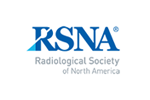Syncope
Syncope occurs when a person quickly loses consciousness for a short time. Presyncope, or near syncope, is the sudden appearance of syncope symptoms such as light-headedness, dizziness, sweating, nausea, and abnormal vision without a loss of consciousness. There are many possible causes of syncope that arise in the heart or brain, although the cause is not always found. Some causes are serious and can lead to death. It is crucial that patients with syncope are assessed with a detailed medical history, physical examination (including detailed heart and neurological examinations), and vital signs such as blood pressure. An electrocardiogram is recommended by multisociety guidelines to detect if people have a problem with the rhythm of their heart. The information from these assessments helps guide the doctor in diagnosis and treatment.
If based on the medical assessment a person is thought to have syncope or presyncope due to a heart condition, ultrasound echocardiography transthoracic resting is usually appropriate as the initial imaging test. CT angiography chest with intravenous (IV) contrast, radiography chest (x-ray), CT angiography coronary arteries with IV contrast, MRI heart function and morphology without and with IV contrast, and MRI heart function and morphology without IV contrast may also be appropriate.
If the medical assessment shows a person has a low probability of a heart condition causing the syncope or presyncope, imaging tests may not be needed. However, radiography chest (x-ray) may be appropriate for initial imaging.
Syncope that occurs together with other medical conditions is discussed separately.
— By Jason Koweek and Gregory J. Czucman, MD. This information originally appeared in the Journal of the American College of Radiology.
This page was reviewed on November 01, 2022



